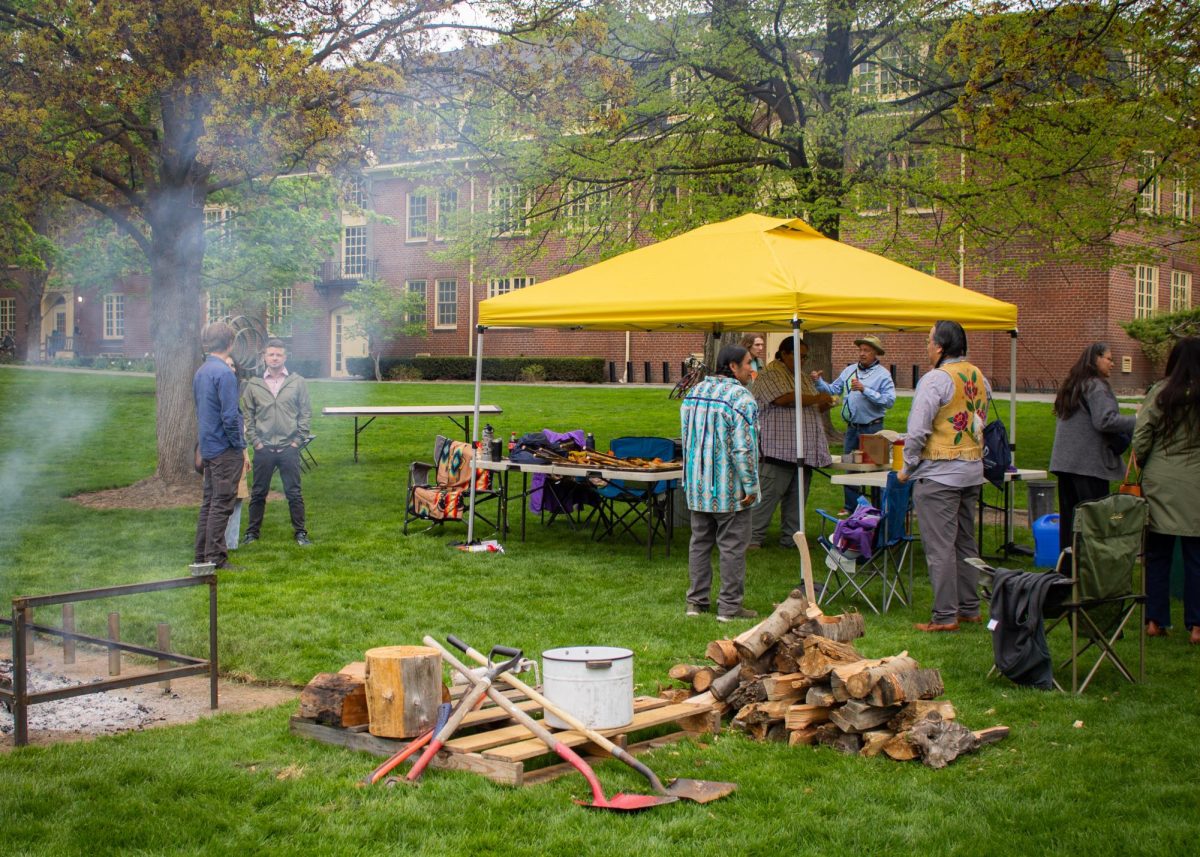After struggling to be maintained during school breaks, Whitman College’s worm composting program closed its doors for good this September. The composting program was previously located behind Lyman Hall and attempted to process a limited portion of the two tons of food waste generated each day at the dining halls; its closure leaves a gap in the composting program which is yet to be filled.

Whitman’s worm composting program opened in the fall of 2011 to much fanfare after purchasing a wigwam, supplies and 45,000 worms using thousands of dollars of grants from outside institutions, but it quickly came into crisis as over the summer of 2012, the worm population plummeted to 5,000 due to confusion over how to care for them and the compost. After briefly stabilizing and beginning to recover over the 2012-13 school year, the worms died off completely this year after miscommunication led to no one caring for the worms for much of August. Although no worm bodies were found in the compost bins, many mites were, which suggests they may have been responsible for the death.
“It’s a problem because we lost a lot [of resources], but it’s also good because it got us to realize that [worm] composting is not sustainable for a school like Whitman,” said sophomore Linnaea Weld, a member of the Whitman Composting Club, a section of Campus Climate Challenge devoted to using composting to deal with food waste on campus.
Although this summer’s extinction was the final blow, the collapse of the worm program reflects a wide array of underlying issues, including difficulty finding a reliable source of food and care over breaks, the rapid turnover of student leadership and shifting student interests.
“We are interested in focusing more on food waste reduction and re-purposing, such as sending food to the hog farm,” said Weld. “We all came back this year really excited to face these challenges and work together, and I think that even if you could call what happened a set back, we’re just taking it in stride and trying to achieve goals as a club.”
Landscape Supervisor Bob Biles has helped students interested in composting and agriculture for over two decades, during which time he’s been witness to several cycles of student environmentalism. While a few programs, such as the Organic Garden, have managed to endure over the education generations, some close down after a short while only to be started back up when students gain interest again a few years later.
“Each group of students thinks they come with an original idea, but there aren’t too many original ideas that haven’t been talked about over the last 30 years in terms of environmental stuff,” said Biles.

A major hurdle to the survival of sustainability programs has been the rapid turnover of students. Because the leadership of environmental organizations changes every year, and membership turns over every four, it is hard for there to be any institutional memory. In previous years, the role of sustainability director was also held by a student, though the college has now upgraded it to a permanent position.
“[Student turnover] just increases the likelihood that projects crumble under the weight of not being able to hand off information and pass the torch very well. I think having me here, or someone in a permanent position, can help that,” said Campus Sustainability Director Tristan Sewell.
Worm composting fell victim to many problems with student interest and turnover, and most importantly, issues with a lack of food waste and students to care for the program during school breaks. However, Whitman’s composting club is coming back strong this year after hiring a first-year student intern to oversee the bike composting program, in which students living off campus can have compost taken to the organic garden free of charge.
Another likely solution for food waste is to haul waste to Welcome Table Farm, where it is fed to hogs. Another possible solution which has been raised is heat composting, using the compost’s internal heat rather than worms to speed decomposition, though this program would likely be small in scale.
Despite the challenges the club has faced, its members are excited to implement new strategies.
“I really love all the new energy and ideas we have, and I’m looking forward to really tackling the food waste problem from a new angle,” said Weld.









